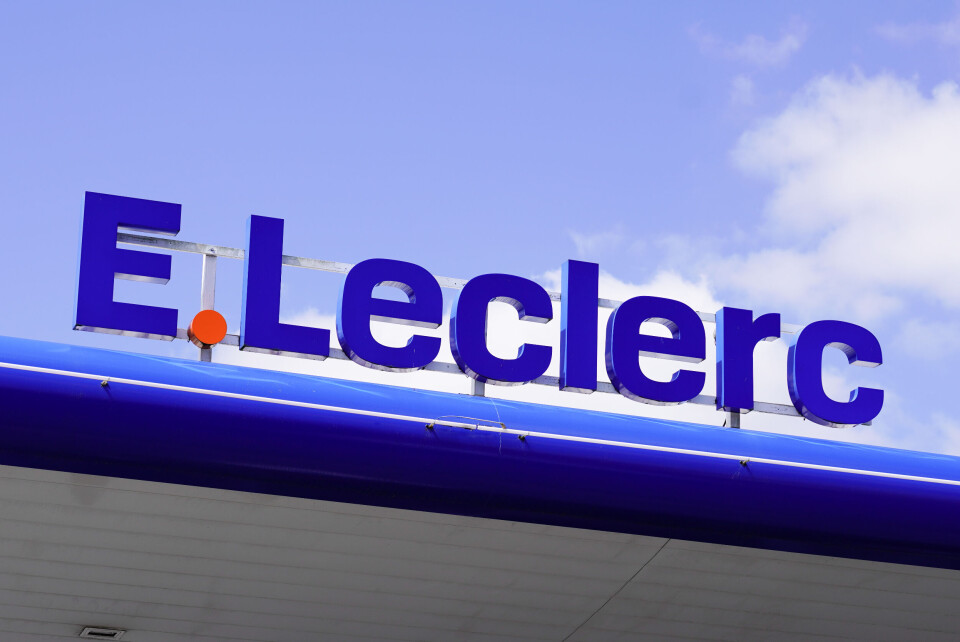-
White storks make strong return in France via nest ‘platforms’ and clipped wings
The Ligue pour la Protection des Oiseaux shares the conservation challenges in saving these birds from extinction
-
Hosting scheme in south-west France lets newcomers sample lifestyle
Households in nine Dordogne communes volunteer under Mes Nouveaux Voisins scheme
-
French boulangeries demand right for staff to work on May 1 so they can open
Artisan bakery owners can work but employees cannot, while certain industrial bakeries are allowed to remain open with workers
Which supermarket in France is the cheapest? Tests show 17% difference
Cost of the same basket of goods was compared across eight major supermarkets with major price differences discovered by brand and geographic location

Supermarket chain Casino is the most expensive in France, and E. Leclerc is the cheapest, a new consumer report has shown, with a 17% difference between the cheapest and most expensive.
Consumer association UFC-Que Choisir sent volunteers to test 98 products across 1,006 supermarkets for eight major brands, from September 11 to 25, 2021 and the results have just been published.
The brands were Auchan, Carrefour, Casino, Cora, Colruyt, E.Leclerc, Intermarché and Système U.
The products were taken from across a range of categories: fresh non-dairy products, dairy products, sweet groceries, savoury products, drinks, frozen food, and hygiene.
The results for the same basket of goods were:
- Casino: €408
- Auchan: €381
- Carrefour: €372
- Cora: €370
- Système U: €365 (the closest to the average of €366).
- Colruyt: €363
- Intermarché: €356
- E. Leclerc: €348
This equals a 17% difference in cost between the most expensive, Casino, and the least expensive, E. Leclerc. The average price across all supermarkets tested was €366.
And despite being slightly more expensive overall, Colruyt was actually equal to E. Leclerc on frozen goods and hygiene products.
Prices varied considerably depending on location. On this measure, Casino was also the most expensive, at €107 difference for the same basket of goods, depending on location. Carrefour was close behind, at €101 difference depending on location.
The brand with the least difference was Cora, with a variation of just €19 between locations.
Read more:How to check how expensive your local French supermarket is
At E. Leclerc, prices were generally lower in the western regions (Brittany, Pays de la Loire, Nouvelle-Aquitaine) than in the rest of France, and slightly lower in the north, east, and central areas. In contrast, prices were higher for the same goods in Ile-de-France and PACA.
E. Leclerc controversy
And while low prices at E. Leclerc may be good news for consumers’ wallets, they have caused controversy within the supermarket and manufacturing industries.
CEO of E. Leclerc, Michel-Édouard Leclerc, sparked a backlash in mid-January when he announced that one baguette would go on sale for.29 centimes and remain that price for at least four months.
The amount was 10 centimes less than competitors Intermarché and Super U, 16 centimes less than baguettes at Carrefour, and considerably less than the cost of baguettes in many independent bakeries.
In response, bakery representatives said that the price was unfair to smaller bakers and would cause “bakeries to die”.
Read more: 'Bakeries will die': Anger in France at Leclerc's 29-centime baguette
At the time, Christiane Lambert, FNSEA president, called the move a “slap in the face”, and said: “Mr Leclerc will need to explain to us how he plans to pay bakers by charging 29 centimes per baguette.”
E. Leclerc’s move prompted Lidl France to follow suit, even though the executive director of Lidl France, Michel Biero, said: "I [lower the price] with regret because it is not very responsible. It is fuelling a price war that destroys values and it is sending a dramatic message to an agricultural world that is in great distress.”
But Mr Leclerc defended his decision to keep prices low (amid other recent “bargains” at the supermarket giant including a kilo of pork chops for €1.69 and a kilo of ham for €1.85).
He said: “In the context of everything going up in price, we wanted to give a signal that Leclerc will do everything we can to ensure prices remain accessible for consumers.”
He said that selling “key product” the baguette at low cost was a symbolic move and a “sign of confidence” for consumers.
He also said that Leclerc was committed to sticking to the ‘loi Egalim’ – a law that states that supermarkets may not sell items at prices that mean suppliers and farmers sell at a loss.
The new UFC-Que Choisir report results come amid rising inflation and a rise in energy costs, with gas heating having risen by 53% between December 2020 and December 2021.
Related articles
The good, the bad and the ugly of customer service in France
Lidl France joins Leclerc to sell baguettes for 29 centimes
Should France allow bread to be sold seven days a week?
Boom in French supermarkets buying and selling second-hand items
























